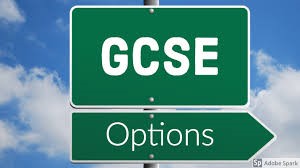UCAS Utimate Guide to Choosing GCSE Subjects

- Posted by Fearghal Quinn
- Posted in Careers Blog
We get it — choosing is hard. How do you know what’s right for you? Will it matter for university? How do you know if you’ve made the right choice?
You’ve probably got more questions and the wrong ideas about your exams than you know. Don’t worry though, we’re here to help, and clear some fake news along the way. Here’s our breakdown on what’s truly important.
Three golden rules on how to choose a subject
There’s no official rulebook on choosing your exam subjects, but here’s what can help you in the process:
- Do your research and explore your options – A little preparation goes a long way. Think about what you’d like to study in the future, or the kind of job that you’d like to do. If you don’t know yet, mixing things up can help to keep your options open.
- Ask for guidance – Reach out for help. Get advice from teachers, advisors, or senior students if you’re feeling stuck. Don’t rush to decide.
- Play to your strengths and Interests – Know yourself. Chances are, the more you like a subject, the easier learning will be. Do what’s best for you, not for others.

Check the A Level requirements in your school
If there’s a subject you’d like to study long-term, knowing what’s needed in your next step can give you a nudge in the direction you want to go.
Go to university websites for more info
Universities will typically list subject requirements in their course page. This will give you a general idea of what unis are looking for, even if you’re undecided about what to do for now.
Identify your learning style
Are you a math whiz or a history buff? Different subjects demand different skills, and you want to play your cards right by showing your strengths as best as possible.
Set a timeline
It’s never too early to start planning. Having a clear deadline will help calm any stress you have over picking your subjects. More time means more thought and care can be given to your choices before you come to a final decision.
Review your choices
When you’ve made up your mind, take a second or third look to be sure of your subject combination. It doesn’t hurt to get a trusted opinion from teachers who know your learning capabilities and how well you’ll cope with the workload.
Your choices only determine the next steps forward, not the rest of your future.
UCAS Utimate Guide to Choosing GCSE Subjects
